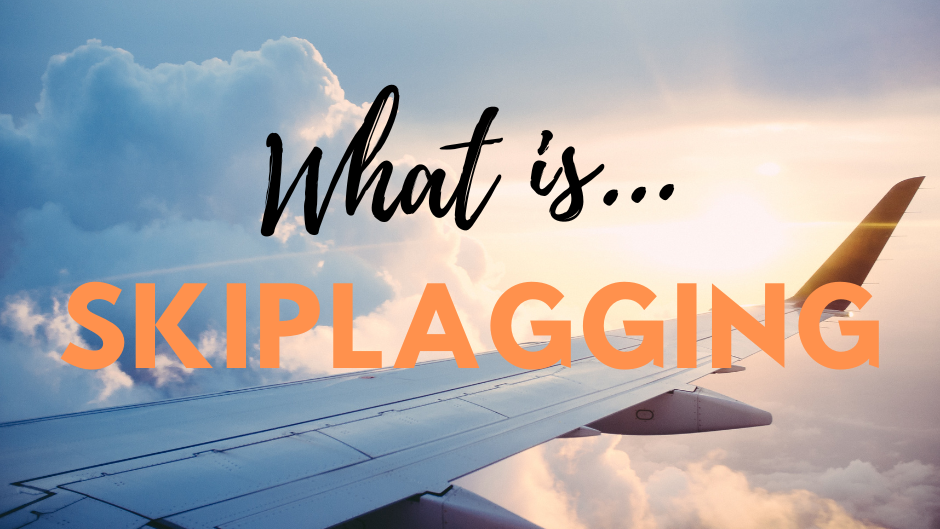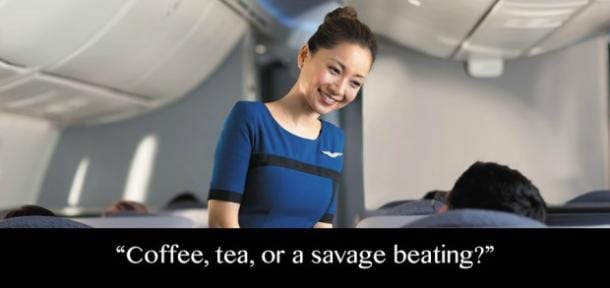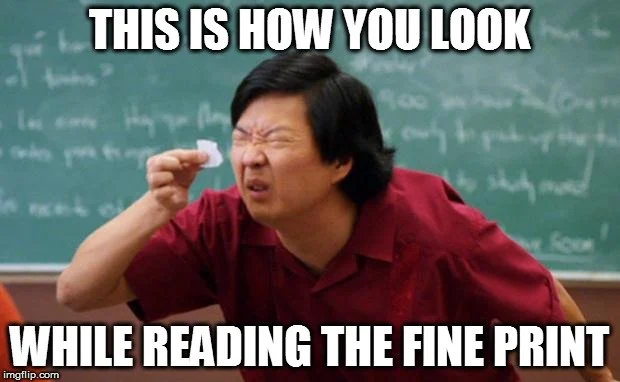“Skiplagging” เป็นกลยุทธ์ที่ช่วยให้ผู้โดยสารประหยัดเงินค่าตั๋ว แต่มักส่งผลให้สายการบินสูญเสียรายได้ ถ้าใครเริ่มสงสัยกันแล้วว่า Skiplagging คืออะไร หาคำตอบจากบทความนี้กันเลยค่ะ ระดับความยาก: 3

What a word: “skiplagging”
Means: Skiplagging is a travel term. It’s a way for travelers to save money, but the airlines don’t like it. In other words, it’s complicated. And not easy to explain! We’ll try….
Let’s say you want to go to Kuala Lumpur. You look on the internet for flights. Unfortunately the “fare” (price) is quite high. But then you find a way to save money! Instead of Kuala Lumpur, you find a cheaper trip to Singapore that has 2 “legs” (flights) with a “stopover” in Kuala Lumpur: first Bangkok-Kuala Lumpur then Kuala Lumpur-Singapore. Your plan is to buy the itinerary but only use the Bangkok-Kuala Lumpur ticket.
What you’re doing is called “skiplagging”: booking a trip where your final destination is the stopover.
Smart, right?
So what: Unfortunately for consumers, skiplagging is against the rules of most airlines. These companies exist to make money, so they want you to pay the higher price. In fact, there is a website called skiplagged.com that helps people find these “loopholes,” and the owners of the website have been “taken to court” by airlines in many countries.

Why now: There was recently a story about a teenager in the US who was not allowed to fly because he was planning to use only the first of 2 legs he had booked. Not only did he need to spend money to buy a new ticket, the airline did not refund the money he had spent on the first ticket. And there’s a chance he will be banned from flying on the airline in the future.
“Free market” pricing: You might wonder why an airline would make you pay more to fly a shorter distance. In some places the government will pass rules for pricing, but, in most countries, airlines set prices based on “supply and demand” — not their actual costs. For example, even though Phuket is farther away from Bangkok than Koh Samui, flights to Phuket cost less because there are many airlines that fly to Phuket. Competition is good for consumers; monopolies are not.
You might also wonder how airlines can punish people for buying something that they don’t use. If you pay for a hotel room for one week but only sleep there 5 nights, the hotel doesn’t mind. If you order a Big Mac and French fries but don’t finish your fries, McDonald’s doesn’t get mad.
In most countries, airlines set their own rules, usually written in teeny, tiny print at the bottom of your ticket that most travelers never read. They say they have good reasons for banning skiplagging; most people think their reasons are stupid.

However, lately there’s been more news about skiplagging, and in some countries some governments are getting involved and usually taking the side of consumers. (Yay!) It’s possible that some airlines will stop blaming their customers for being smart about how they spend.
คำศัพท์ที่น่าสนใจในบท
- complicated (adj) ยากที่จะเข้าใจ, ซับซ้อน, ยุ่งเหยิง, ยุ่งยาก, ยากที่จะแก้ไข
- stopover (n) การหยุดพักระหว่างทาง
- itinerary (n) แผนการการเดินทาง, กำหนดการเดินทาง
- destination (n) จุดหมายปลายทาง, หลักชัย, จุดหมาย, เป้าหมาย, ที่หมาย
- exist (vi) มีอยู่, มีชีวิต, รอดชีวิต, มีชีวิตอยู่,
- loophole (n) ช่องโหว่ในกฎหมาย, จุดอ่อน, ข้อบกพร่อง
- ban (vt) ห้าม, สั่งห้าม
- competition (n) การแข่งขัน
- monopoly (n) ระบบผูกขาด, เอกสิทธิ์
- teeny (adj) เล็กมาก, จิ๋ว, จ้อย, จิ๊ด, เล็กน้อย
![]() มีคำศัพท์คำไหนที่อยากให้อธิบายด้วยภาษาอังกฤษอีกบ้างไหมครับ ส่งเมลมาที่ [email protected] ได้เลยครับ
มีคำศัพท์คำไหนที่อยากให้อธิบายด้วยภาษาอังกฤษอีกบ้างไหมครับ ส่งเมลมาที่ [email protected] ได้เลยครับ
![]()




Comments are closed, but trackbacks and pingbacks are open.